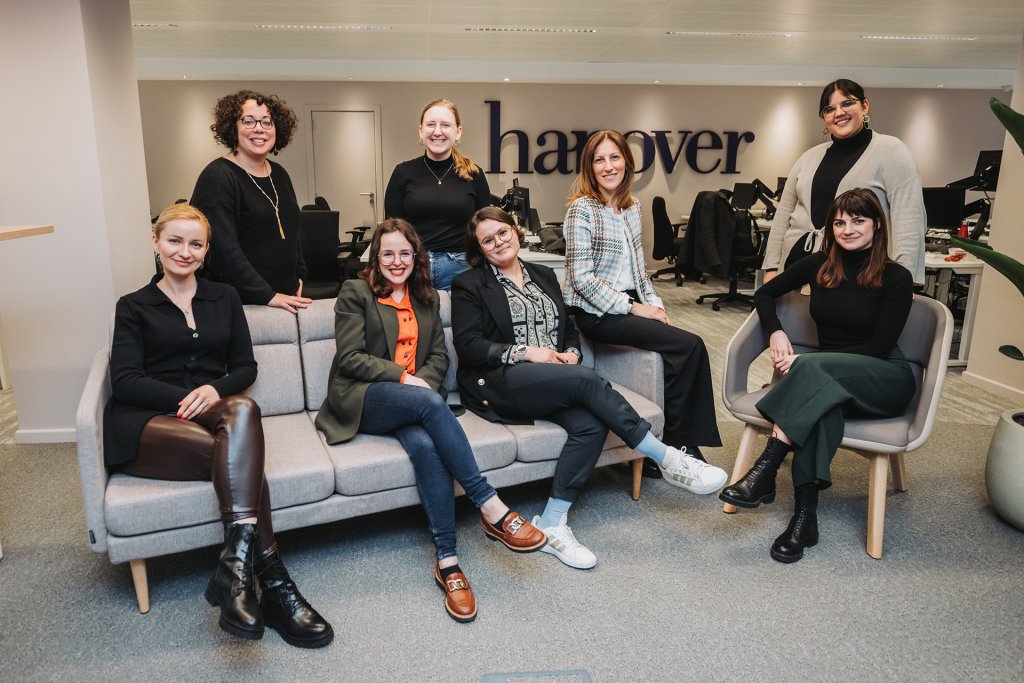International Women’s Day provides an opportune moment to take stock of progress made and identify what more should be done to remedy inequality in our society.
By reframing our engrained conceptions about women and society, we can induce change, and while this will take time, step-by-step, day-by-day, we can advance towards a fairer society
International Women’s Day, celebrated on 8th March every year, is a day when women around the world are acknowledged and appreciated for their resilience, courage, and strength to rise against oppression and tackle injustice. But are such milestones in our calendars creating lasting change, especially when it comes to the digital world?
The answer is yes, somewhat.
The message is starting to resonate in the institutions of the European Union. Vera Jourova, the Vice-President of the European Commission, recently said: “Not only today, but every day, we stand united with all women to build momentum for their rights across the globe. We want to empower women to pursue their life goals unhindered.” That is the essence of the challenge, and when we consider the great opportunities offered by the digital sector, equality in this area is of particular importance. It is, therefore, encouraging that the theme adopted by both the European Commission and United Nations for 2023 International Women’s Day was “DigitALL: Innovation and technology for gender equality”.
Persistence above all
Unequal representation and opportunities contribute to eminent gaps in digital skills and representation in the digital sector. There is great value in the untapped female resource for the digital sector, in terms of economic benefit, but also in terms of innovation and solutions. Women are not equally represented, neither in boardrooms nor in code. Women have faced numerous challenges in accessing the digital sector and breaking through glass ceilings. But they have persevered and are on the path to change.
It is encouraging to see more and more women taking the stage in traditionally male-dominated sectors and areas of expertise. It’s especially encouraging to see this taking place in the digital sector too. But it has not come without a cost, either personal or societal. Women still face prejudices about family life and working life, and preconceptions about their ability to hold a position in the digital and technology sector. To date, the data shows that most women are more than qualified, but societal preconceptions and misconceptions interfere.
Platform for Change
Hanover Brussels Managing Director Claudia La Donna, is one of Brussels’ leading experts on digital issues, and she sees the challenge in the following way:
“Challenges for women in the digital sector are the same challenges that women encounter in many other sectors. There are many female professionals in the digital sector, as many as men, if not more. Yet we see disproportionately fewer women in leadership positions in this profession, and even fewer women on ‘stage’ speaking at conferences. Event organisers often complain that there were not enough women to reach out to as speakers. This is why I helped to establish the W@Digital network, where our mission, and my commitment, was to overcome that challenge by offering a ‘platform’ for women in the digital sector to first be found, and then to be recognised.”
When examining the fundamentals of our digital systems, most of the coding in our devices has been developed by men, and this translates through to our societal perceptions. This is not to blame men but is rather about realising the internalised and engrained societal model that disregards women. By assessing the internalised conceptions we have about women, we provide ourselves the opportunity to change. Digital policy developments in the European Union also present a fitting window of opportunity in this regard.
Claudia La Donna further adds:
“No change can happen overnight. Only through continuous efforts can we contribute to change and achieve the impact we seek. We must absolutely continue as we are, on a trajectory of joint effort, support, and inclusiveness. Men also need to be part of the journey to achieve the change. Having women in leadership positions and on stage should not be the trend of the moment but the result of a structural change of perception and perspective. Thus, the incremental contribution that the W@Digital network is offering to women in the sector is to create the right conditions not only to be found, but to be heard and seen; to make the ‘stage’ ours.”
Women and digital transformation go hand-in-hand
The digital transformation will always remain incomplete as long as women are excluded and undervalued. The digital gender divide harms communities seeking digital and technological innovation. The European Union’s initiatives to curb inequality and ensure equal opportunities are very welcome, but we must not lose sight of the importance of including women and all they have to offer to the European digital transition.









